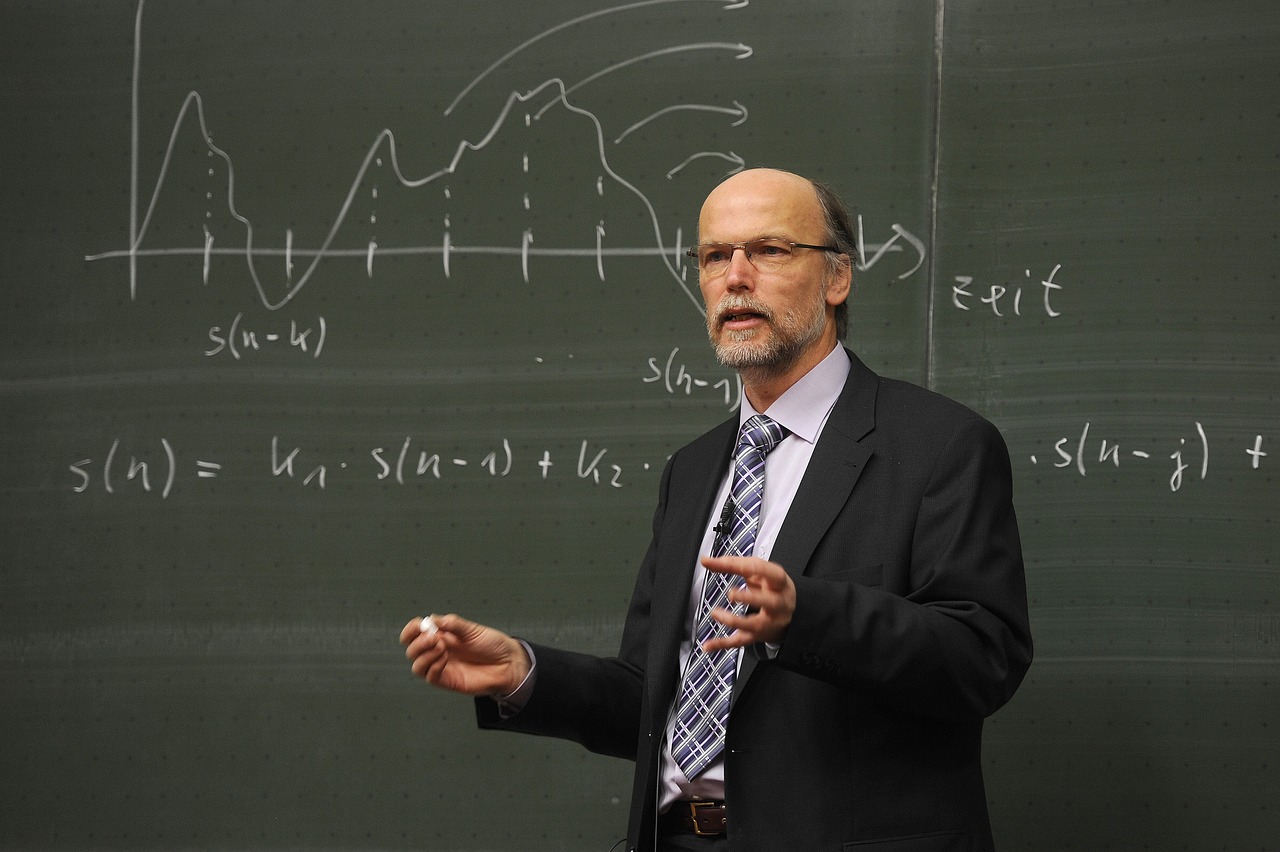
For the Aspiring Economist
What makes a successful economist?
Read a summary using the INOMICS AI tool
The following article first appeared in the INOMICS Handbook 2024.
“The master-economist must possess a rare combination of gifts. He must reach a high standard in several different directions and must combine talents not often found together. He must be mathematician, historian, statesman, philosopher…He must study the present in the light of the past for the purposes of the future. No part of man's nature or his institutions must lie entirely outside his regard. He must be purposeful and disinterested in a simultaneous mood; as aloof and incorruptible as an artist, yet sometimes as near the earth as a politician.”
– John Maynard Keynes
This quote from the famous economist Keynes raises a number of areas that help us begin to answer the question of how to succeed as an economist. Reading the quote, an economics student may ask: in the modern age, what are the necessary skills one must possess in order to become a “successful” economist?
The answer is, of course, hugely subjective. It may also fluctuate as one’s own career goals change. Here, we will identify some of the age-old must-haves – as well as some of the new skills economists ought to acquire in the age of climate change, globalization, and AI.
Before we begin: the need for economists
The present age is a remarkable time, probably among the most exciting and challenging times ever to enter the field. Many economic models and presumptions of the past are continually showing themselves to be outdated and in need of theoretical improvements. This has much to do with the new challenges facing our generation. Whether it’s in confronting climate deterioration, demographic change, the rise of AI and automation, wealth inequality, or even incorporating basic realism into textbooks, there is room for increasingly advanced economic models that can more accurately account for the complexities of real life.
Beyond the need for improved economic models, though, is a societal and political need. In handling many of these emerging challenges – some of which were wrought by an inability to regulate our own activities – the ailing neoliberal orthodoxy has found itself ill equipped. To borrow the words of economist Howard Reed: “until we ditch the old textbook, we’ll never face up to the challenges of the modern world”.
So far, there has been little sign of this happening any time soon; as Prospect editor-in-chief Tom Clark has observed of most Western governments, “out-dated frameworks still inform policy prescriptions”. In fact, searching for alternative solutions may partly explain why there’s been a resurgence of nationalist and even fascist sentiment across democracies in recent times – but those systems have been tried before, and surely do not hold the answers society needs.
The responsibility, then, lies with the next generation of economists to combat this deficit of ideas. Optimistic, open-minded, and determined to make the world more livable for all, it is they that must provide the insight, innovation, and policy stewardship needed to guide our future path.
Think you have what it takes to answer the call? Read on.
What’s needed: the (quantitative) basics
It should be no surprise at this point that a familiarity with mathematics and statistics is vital to any aspiring economist. Competence in these areas will allow one to analyze data using econometric techniques such as regression analysis, a necessary skill for nearly any career in economics.

Image credit: Pixabay.
Beyond the bread-and-butter quantitative skills, familiarity with data science will help economists navigate popular economic software such as Matlab, R, Python, and STATA. Variants of these software programs will, through necessity, become your future friends; it’s probably best to make their acquaintance as soon as possible. In fact, the entire discipline of data science increasingly intersects with economics. This will only become more true over time as AI tools continue to percolate through the economy. As such, a familiarity with computer science, data science, and programming can only help you.
Some recent economics graduates may not yet be comfortable with handling large numerical datasets, using statistical software programs, or building bulletproof economic models to interpret data. It’s easy to take coursework only in one’s specialty or interests during an economics Master’s degree, for example, and to have forgotten the more numerically-focused introductory courses.
If you find yourself in this situation, fear not. Consider signing up for professional skills trainings and/or summer schools to fill in the gaps in your skillset, which will not only improve your career prospects, but help you to become an even more capable and well-rounded economist. It’s never a bad idea to explore options like these to keep you on top of your game.
Regardless, in order to analyze economic data, learn, and deliver powerful insights that can change the world, competence with the quantitative elements of the field is key.
Interdisciplinary knowledge
Beyond mathematical and data proficiency, economists ought to be curious, independent thinkers able to reason soundly, and possess the humility to admit when the data has proven one’s own theory wrong. These are excellent qualities to have for an economist, allowing them to glean new truths with minimal bias. Great strides in economics have come from dispassionately examining why things are the way they are and using the resulting models to help prescribe how they can be made better.
Economists also tend to benefit greatly from “thinking outside the box”, sometimes going beyond the strict parameters of economics for tools and answers. This is where familiarity with other social sciences becomes key. Learning about other disciplines, particularly those that relate to economics in some way, can help an economist to make breakthroughs.
Clearly then, modern economists (and economic theory itself) can benefit from taking up an interdisciplinary approach to research. Dr. Olivier Blanchard, our 2024 Handbook interviewee, named this kind of creativity as an important quality that young economists must demonstrate in order to excel.
Communication Skills
Another crucial skill is communication, in a clear and concise form, both verbal and written. The complexities of economics can easily be lost on important stakeholders like clients, politicians, constituents, and community members who – we should remind ourselves – don’t have advanced degrees in economics. This is important; the fact that economic processes underpin so much of governmental policy means it’s imperative that decision makers and ultimately the public are up to speed on economic issues, prospective policies and the like.

Image credit: Freepik.com.
But not everyone can study for a degree in economics. Thus, a great economist will be able to convey complicated, data-backed economic theories through understandable, accessible language. This is quite the skill, and its absence from public discourse can be potentially very damaging. Few would argue, for instance, that the entire British electorate had all of the relevant facts at hand when deliberating withdrawal from the European Union.
Further, politicians and the news media around the world often routinely misunderstand the nuances of economics. As Lord Thomas Macauley once stated, as an example of this: “Free trade, one of the greatest blessings which a government can confer on a people, is in almost every country unpopular”. The benefits of comparative advantage have been well documented, yet many modern voters around the world rally to the call of protectionist policies, not realizing that those policies will ultimately increase the costs of the goods they buy every day.
This is one example to demonstrate the importance of clear economic communication. But of course, it isn’t just public-facing economists who should master communication skills. Business clients and other stakeholders alike should be presented economic facts and recommendations in understandable terms so that they can make properly informed decisions, too.
Know this: history fuels continuous improvement in economics
One of the many reasons economists were lambasted for their failure to predict the economic crash of 2008 was that it exposed some unrealistic assumptions that economists had grown accustomed to leaning on. This includes analyzing the decision-making of individuals as if everyone was perfectly rational at all times.
Pre-2008 economic orthodoxy often assumed that people followed a very rational thought process when faced with a decision. First, list all possible outcomes of all possible options, attach a value to each, and assess potential risk. Next, perform a comprehensive analysis based on the expected returns of each option, and choose the optimal decision. Is this process rational? Certainly. Realistic? Well…
Evidently, such purely rational thinking was absent in the lead up to 2008, where banks famously began to package subprime loans and sell them as financial securities that were overvalued. The systematic understatement of risk, fueled by moral hazard, represented a bet that cost the world dearly.
Partly in response to such tragedies, economics since its inception has accepted criticisms of its models and failures, and used them to create more robust and realistic models of the economy. One major example of this is the advent of behavioral economics, which increasingly asks how real people behave towards decision-making and risks in ways that aren’t necessarily optimal. It incorporates psychological, cultural, social, and emotional factors into its theories, and is a prime example of how economics can benefit from other social sciences.
Calling all future economists
In summary, and though there is no strict formula, great economists typically have the statistics and math skills to work with data and derive meaningful insights. They often have a specialization in one or two areas, but benefit greatly from an understanding of others. They are able to emerge from the depths of analysis and communicate the high-level meaning to other important stakeholders who don’t have the same training. And, the absolute best of them possess a drive and motivation to do the right thing, to advance theory, and to make the world a better place.
Now more than ever, economists are uniquely suited to help the world understand and navigate the potentially tumultuous future being presented by challenges like climate change and the explosive growth of AI tools. Perhaps you can take up the call and become an economist who will guide us all towards prosperity.
The above article includes small sections that were originally written by William Pearse.
Header image credit: Freepik.com.
-
- PhD Program, Program, Postgraduate Scholarship
- Posted 1 week ago
PhD Program in Management - 11 Fully Funded Scholarships
at Luiss Guido Carli University of Rome in Rome, Italy
-
- Professional Training Course, Supplementary Course, Online Course
- (Online)
- Posted 1 week ago
Maximising the Potential of Stata’s new Python Capabilities - Live Online Course
Starts 9 Apr at TStat Training
-
- Postdoc Job
- Posted 1 week ago
Postdoctoral Researcher (all genders welcome)
At Georg-August-Universität Göttingen in Germany













